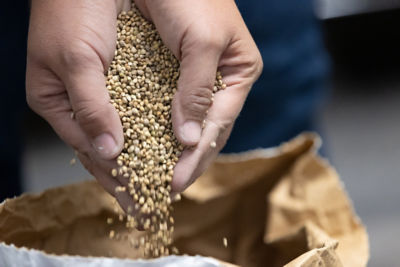Since ToBRFV was first discovered, our industry-leading R&D team has been working to find a solution to ToBRFV.
- We are currently working towards the next-generation hybrids with High Resistance in our pipelines and commercial portfolio through combined technical paths and deployment strategies.
- We are deploying the newest disease diagnostics technologies to assess pathogen evolution and reduce disease risk.
- We have been actively supporting an initiative to further understand the epidemiology of ToBRFV by sequencing various strains of the virus.
- We have a thorough testing protocol for new hybrids to support agronomic performance under a wide range of conditions (disease pressure, various environments and management conditions).











